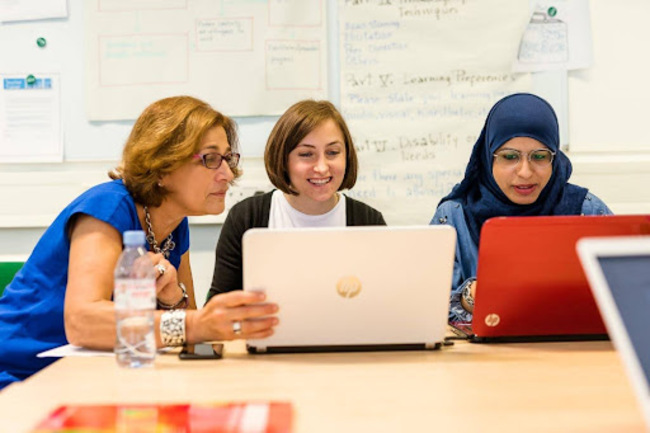Children now have access to the online world at an incredibly young age. The internet provides a vast array of knowledge and opportunities for learning and entertainment. However, it also carries various risks and challenges. Teaching children the importance of digital citizenship is vital to ensuring their safety, promoting responsible online behaviour, and equipping them with the skills needed to navigate the digital realm successfully. Here’s how you can do just that.
Understanding Digital Citizenship
Digital citizenship refers to using technology and digital resources responsibly and ethically. It covers aspects like online safety, preventing cyberbullying, digital literacy, and respecting intellectual property rights. Instilling these principles in children early empowers them to make informed choices and contribute positively to digital communities.
Establishing Online Safety Practices
A major concern with children’s digital presence is online safety. Parents, carers and educators should teach children about the potential dangers of sharing personal information, interacting with strangers, and accessing inappropriate content. Encourage children to keep their personal details private and report any suspicious or concerning activities to a trusted adult.
Promoting Ethical Online Behaviour
In addition to safety, it’s crucial to teach ethical online conduct. This includes respecting others’ privacy, avoiding cyberbullying, and understanding the consequences of online actions. Encourage critical thinking about consumed and shared content while being mindful of digital footprints.
Teaching Digital Literacy
Digital literacy is another key aspect of digital citizenship. Children should learn to navigate the online world effectively, evaluate information sources for credibility, and identify misinformation or fake news. Equip them with skills for effective research, using digital tools responsibly, and understanding intellectual property rights.
If you foster children with an agency like Fostering People, proactively teach digital citizenship. Some foster children may have experienced trauma or lacked guidance on responsible online behaviour. Provide a safe, supportive environment to explore the digital world while emphasising online safety and ethical conduct.
Managing Screen Time
In addition to the principles of digital citizenship, it’s equally important to help children develop healthy habits around screen time and technology use. Establish clear rules and boundaries for when, where, and how long digital devices can be used. Encourage a balance between online and offline activities and promote quality family time without digital distractions.
Practical Tips
Here are a few tips you can keep in mind:
- Lead by Example: Model responsible, ethical online behaviour. Children learn best through observation.
- Clear Rules: Set age-appropriate guidelines for internet use, online interactions, and digital devices.
- Open Communication: Create an environment where children feel comfortable discussing online experiences and asking questions.
- Educational Resources: Use books, videos, and interactive games designed to teach digital citizenship engagingly.
- Collaborate: Work with schools, community groups, and parents to reinforce lessons consistently.
Equipping children with knowledge and skills for navigating the online world safely and responsibly is an essential responsibility for parents, carers, educators, and society. Fostering digital citizenship from an early age will protect children while shaping a more positive, responsible digital future. It empowers children to become ethical, contributing digital community members.







